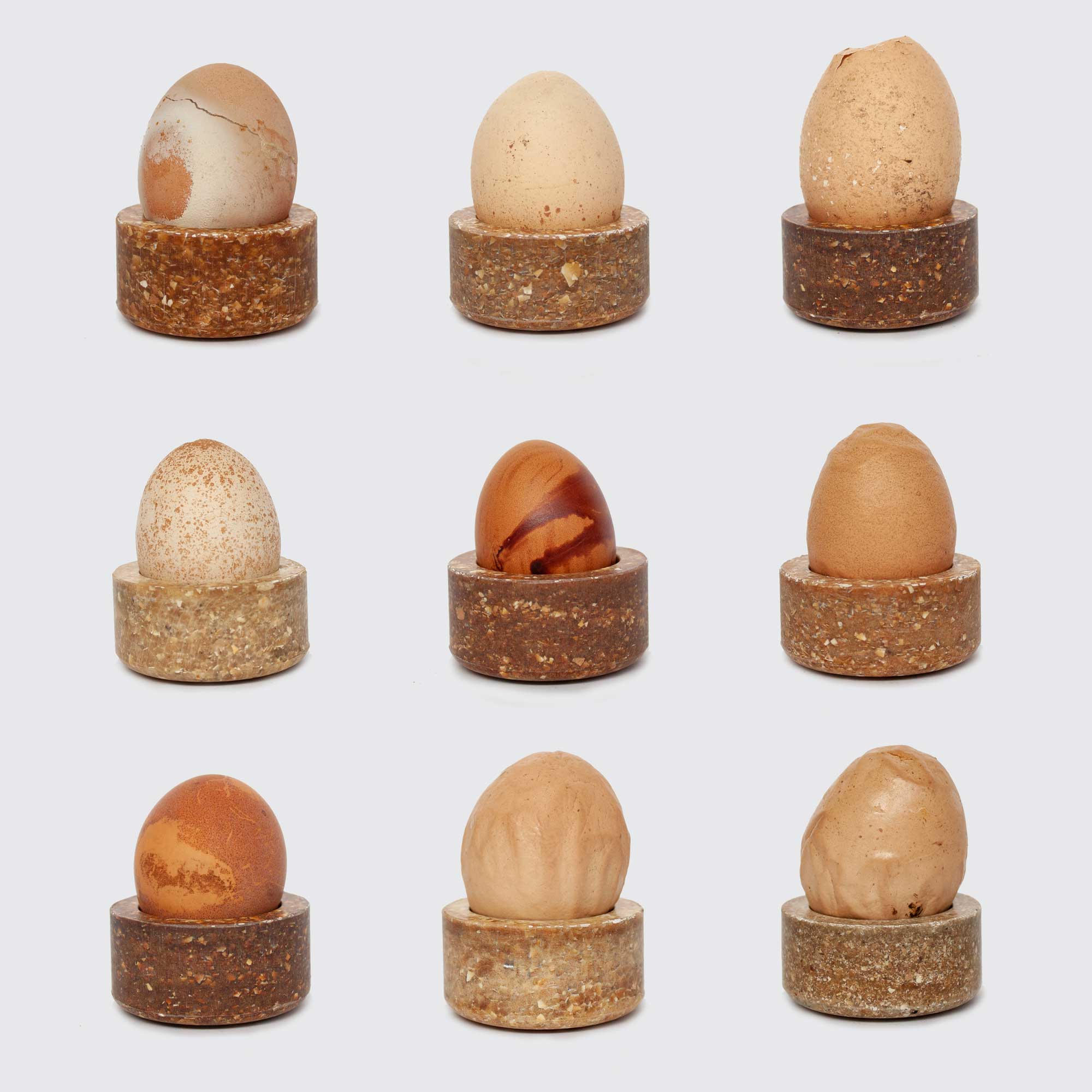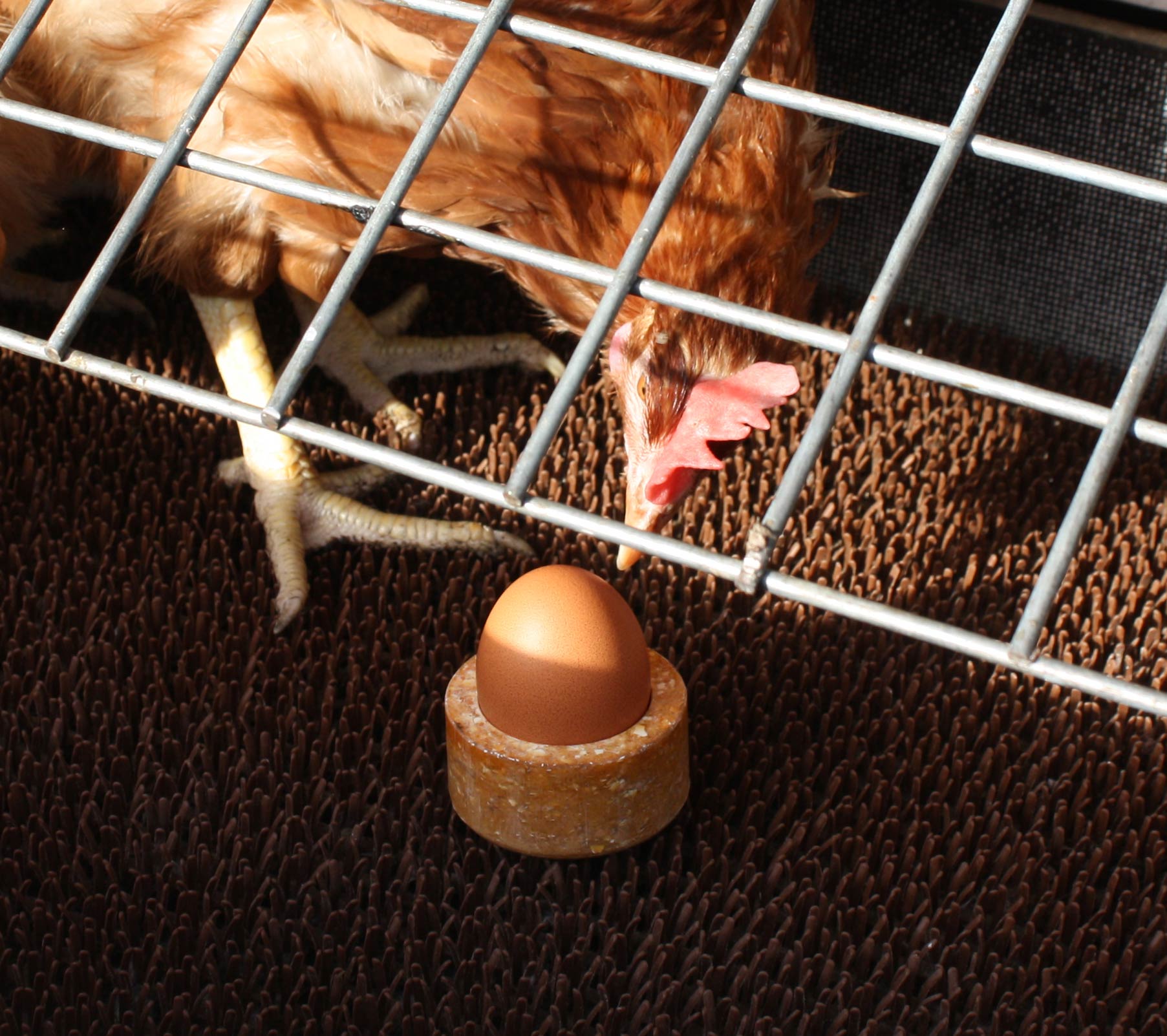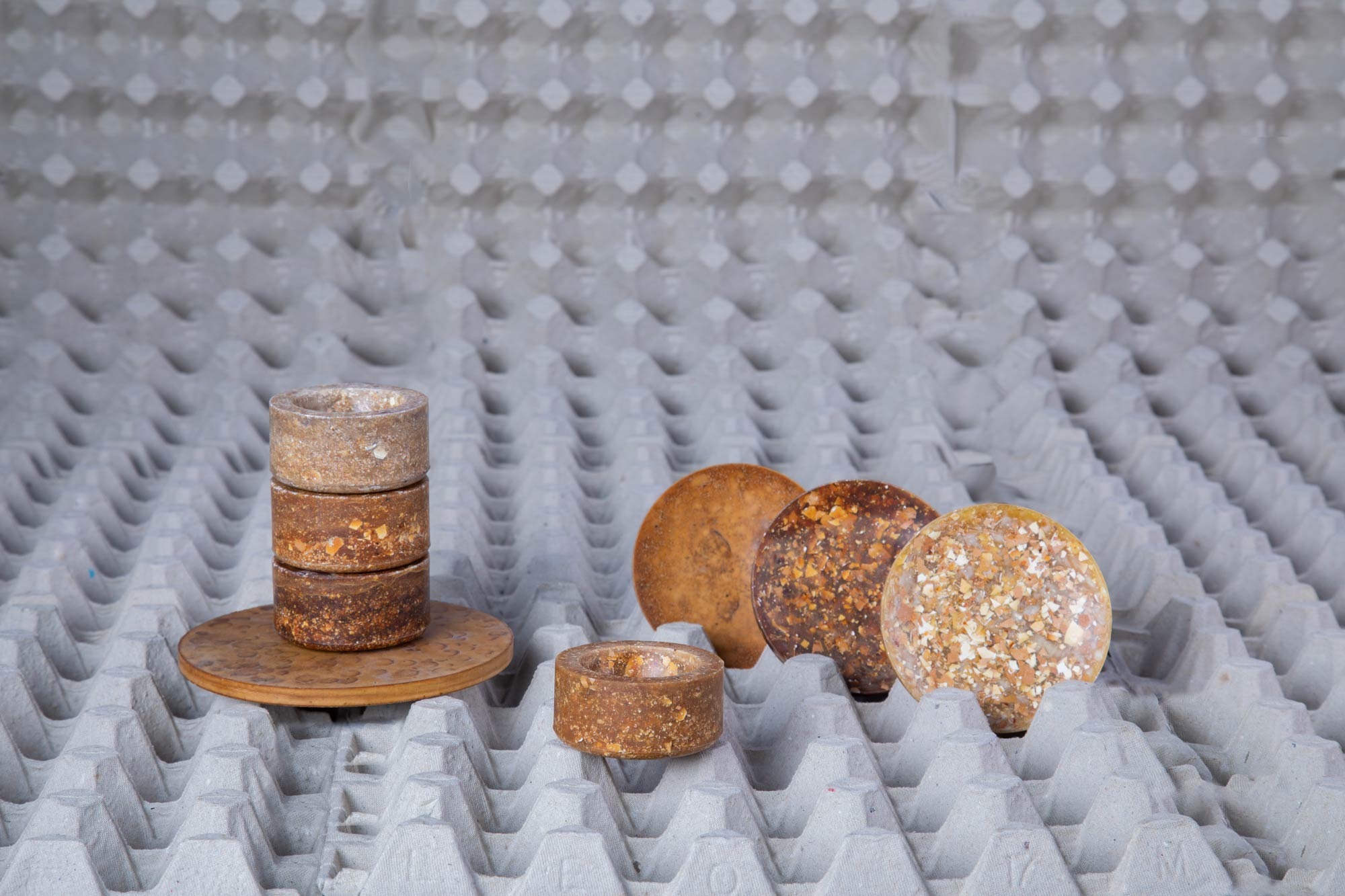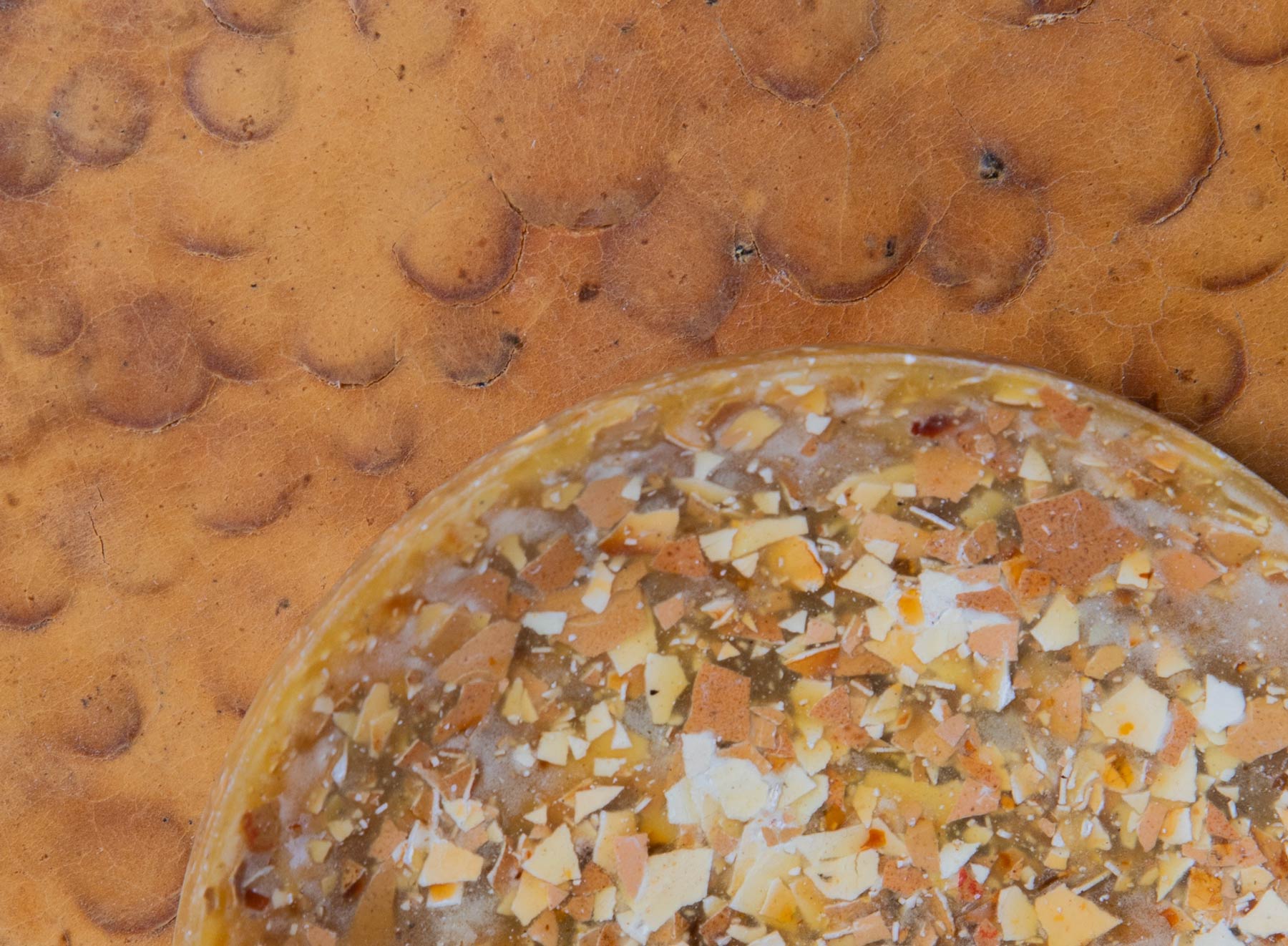2. How do you like your eggs?

Year: 2019 - ongoing
Material: b-stock & damaged eggs
Annually, an average of 6,4 billion hens lay 1,1 trillion eggs. Simultaneously one third of all food per year is lost or wasted which includes eggs that have short shelf life and whose fragile shell is not the most suitable protection against processing and transport.
In the project ‘how do you like your eggs’ the content becomes container, an egg cup is produced from discarded eggs. It explores the extraordinary materiality of an ordinary item of consumption. There is an ambiguity in the symbolism of the egg which embodies on the one hand the beginning of life and on the other hand became swallowed up in cheap consumption.
In the project ‘how do you like your eggs’ damaged and b-stock egg whites and shells are thermoformed into bio-plastic cups with zero additives. In todays context traditional non degradable plastics are highly problematic, especially because of our throw-away culture;
opposed to that in this project a new, fully degradable bioplastic is used to create a narrative about consumptionand waste.

The process starts at the sorting station of the farm I‘m collaborating with. The eggs get checked for damages, dirt and deformations and if they pass the test they go to the shop, if they don‘t they are discarded. It is important to know that those practices vary between different farms; in large scale operations b-stock eggs are turned into mayonnaise, but many smaller and biological farms don‘t produce on a scale that this process would be profitable so they discard the eggs.
When working with an animal product it is extremly important to know where your material comes from since through working with it you are becoming directly related to the well being of a living creature which creates a huge responsibility. That is why one of the most crucial steps of the project was to find a biological and sustainable farm that puts the quality of life of their animals first. We are collaborating with a dutch farming project called GeluksVogel and all the eggs used for the project come from them.

